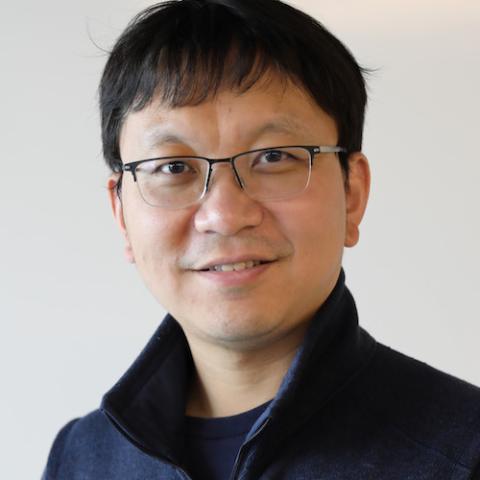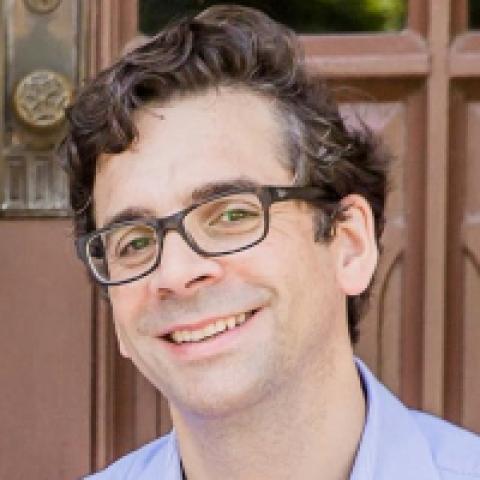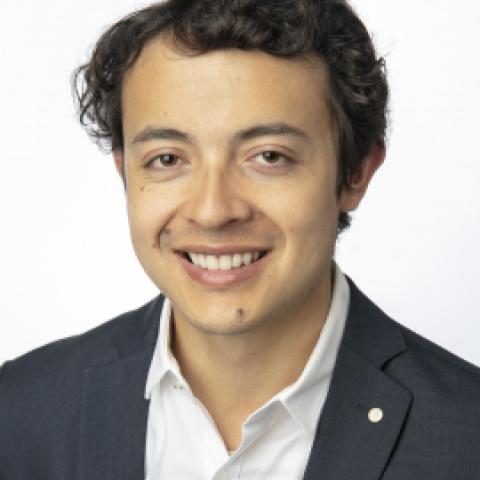Yi Deng

- Climate Science, Solutions, and Policy


Richard DeMillo is the Charlotte B. and Roger C. Warren Professor of Computing at Georgia Tech. He was formerly the John P. Imlay Dean of Computing. Positions he has held prior to joining Georgia Tech include: Chief Technology Officer for Hewlett-Packard, Vice President of Computing Research for Bell Communications Research, Director of the Computer Research Division for the National Science Foundation, and Director of the Software Test and Evaluation Project for the Office of the US Secretary of Defense. He has also held faculty positions at the University of Wisconsin, Purdue University and the University of Padua, Italy. His research includes over 100 articles, books and patents in algorithms, software and computer engineering, cryptography, and cyber security. In 1982, he wrote the first policy for testing software intensive systems for the US Department of Defense. DeMillo and his collaborators launched and developed the field of program mutation for software testing. He is a co-inventor of Differential Fault Cryptanalysis and holds what is believed to be the only patent on breaking public key cryptosystems. He currently works in the area of election and voting system security. His work has been cited in court cases, including a 2019 Federal Court decision declaring unconstitutional the use of paperless voting machines. He has served as a foreign election observer for the Carter Center and is a member of the State of Michigan Election Security Commission. He has served on boards of public and private cybersecurity and privacy companies, including RSA Security and SecureWorks. He has served on many non-profit and philanthropic boards including the Exploratorium and the Campus Community Partnership Foundation (formerly the Rosalind and Jimmy Carter Foundation). He is a fellow of both the Association for Computing Machinery and the American Association for the Advancement of Science. In 2010, he founded the Center for 21st Century Universities, Georgia Tech’s living laboratory for fundamental change in higher education. He served as Executive Director for ten years. He was named Lumina Foundation Fellow for his work in higher education. His 2015 book Revolution in Higher Education, published by MIT Press, won the Best Education Book award from the American Association of Publishers and helped spark a national conversation about online education. He co-chaired Georgia Tech’s Commission on Creating the Next in Education. The Commission’s report was released in 2018. He received the ANAK Society’s Outstanding Faculty Member Award.

Munmun De Choudhury is currently an associate professor at the School of Interactive Computing, Georgia Tech. Munmun’s research interests are in computational social science, with a focus on reasoning about personal and societal well-being from social digital footprints.
Social Media; Social Computing; Computational Social Science; Mental Health; Natural Language


Bo Dai is a tenure-track assistant professor at Georgia Tech's School of Computational Science and Engineering. Prior to joining academia, he worked as a Staff Research Scientist at Google Brain. Bo Dai completed his Ph.D. in the School of Computational Science and Engineering at Georgia Tech, where he worked from 2013 to 2018 with Professor Le Song. His research focuses on developing principled and practical machine learning techniques for real-world applications. Bo Dai has received numerous awards for his work, including the best paper award at AISTATS 2016. He regularly serves as a (senior) area chair at major AI/ML conferences, such as ICML, NeurIPS, AISTATS, and ICLR.
Reinforcement Learning Data-Driven Decision Making Embodied AI

Eric joined PACE in 2021, and currently leads the Research Computing Facilitation team, after having worked as a Cyberinfrastructure Architect and RCF. Before joining PACE, Eric could be found at Indiana University as a systems engineer with the XSEDE Campus Bridging team, providing HPC-oriented consultations to institutions across the US. He also worked closely with the Cyberinfrastructure Research Center at IU, providing support for several different science gateway projects. Prior to that, his research in condensed matter physics at Florida State University involved computational studies of the optical properties of strongly correlated materials.

Didier Contis is the Executive Director of Academic Technology, Innovation, Research Computing for the Office of Information Technology. In his role, Didier provides long-range vision, strategic directions, and support for the research and academic technologies of the Institute by partnering with research and academic entities, and leading and executing the aspects of IT strategy that enable the Institute to achieve its research, teaching and learning, and innovation goals.
He previously served as the Interim Chief Information Security Officer (2021) and led the initial Institute response to the 2021 campus-wide external endpoint audit using the centralized coordination with distributed execution organizational approach. He also served as Interim Associate VP for Data Strategy and Analytics and was a member of the Data Security Task Force appointment (2020), charged with improving campus policies and practices concerning the use and sharing of sensitive data.
Since Fall 2021, he has been co-teaching a Vertically Integrated Project class focused on using data as an asset and is interested in applying knowledge graphs for data analytics. In partnership with the University of Michigan and the New School, Didier advocates for the safe and responsible use of eXtended Reality (XR) technologies in higher education. He has co-taught an Educause Learning Lab on XR Security, Privacy, Safety, and Ethics Considerations in Higher Education.
As the Director of Technology Services for CoE from 2007 to 2022, he established several partnerships with the Georgia Tech central IT organization and other academic units to develop new campus-wide services supporting the educational and research ecosystem, with a strong focus on protecting research data, empowering users, and providing equitable access. Some of these initiatives included the launch of the first large-scale GPU-enabled virtual computer lab to provide students access to scientific and engineering applications irrespective of time, place, and device constraints, and a multi-academic unit partnership to create a federated and distributed private academic cloud, supporting research and instruction.
Didier began his career at Georgia Tech in 1999 as a Research Engineer in the School of Electrical and Computing Engineering, focused on Cyber Security, HPC, Unix, and Networking, as well as contributing to research projects on hardware platforms for Network Intrusion Detection and Prevention. In addition, he partnered with faculty to get a grant from Cisco Systems and create the first hands-on network security laboratory. He also was the IT Manager for the School of Civil and Environmental Engineering from 2004 to 2007. Didier holds a Master of Science degree in Electrical Engineering from the Georgia Institute of Technology and a Diplôme d'Ingénieur (Bachelor) from the École des Mines de Nantes in France.

Tom Conte holds a joint appointment in the Schools of Electrical & Computer Engineering and Computer Science at the Georgia Institute of Technology. He is the founding director of the Center for Research into Novel Computing Hierarchies (CRNCH). His research is in the areas of computer architecture and compiler optimization, with emphasis on manycore architectures, microprocessor architectures, back-end compiler code generation, architectural performance evaluation and embedded computer system architectures.
Computer Architecture; Compiler Optimization

Dr. Gari Clifford is a tenured Professor of Biomedical Informatics and Biomedical Engineering at Emory University and the Georgia Institute of Technology, and the Chair of the Department of Biomedical Informatics (BMI) at Emory. His research focuses on the application of signal processing and machine learning to medicine to classify, track and predict health and illness. His focus research areas include critical care, digital psychiatry, global health, mHealth, neuroinformatics and perinatal health. After training in Theoretical Physics, he transitioned to AI and Engineering for his doctorate (DPhil) at the University of Oxford in the 1990’s. He subsequently joined MIT as a postdoctoral fellow, then Principal Research Scientist where he managed the creation of the MIMIC II database, the largest open access critical care database in the world. He later returned as an Associate Professor of Biomedical Engineering to Oxford, where he helped found its Sleep & Circadian Neuroscience Institute and served as Director of the Centre for Doctoral Training in Healthcare Innovation at the Oxford Institute of Biomedical Engineering. As Chair, Dr Clifford has established BMI as a leading center for critical care and mHealth informatics, and as a champion for open access data and open source software in medicine, particularly through his leadership of the PhysioNet/CinC Challenges and contributions to the PhysioNet Resource. Despite this, he is a strong supporter of commercial translation, working closely with industry, and serves as CTO of MindChild Medical, a spin out from his research at MIT.
Health Information Technology

Diego Cifuentes is an Assistant Professor in the H. Milton Stewart School of Industrial and Systems Engineering at Georgia Tech. His research centers around the development of mathematical optimization methods, and the application of these methods in engineering areas such as machine learning, statistics, robotics, power systems, and computer vision. He also works in the theoretical analysis of optimization methods, leveraging geometric and combinatorial information to improve efficiency and robustness. Prior to joining ISyE, he served as an applied math instructor in MIT and as a postdoctoral researcher in the Max Planck Institute for Mathematics in the Sciences.
He earned his Ph.D. and M.S. in Electrical Engineering and Computer Science from MIT, and his B.S. in Mathematics and B.S. in Electronics Engineering from Universidad de los Andes.
Mathematical optimization methodsStatisticsComputer vision